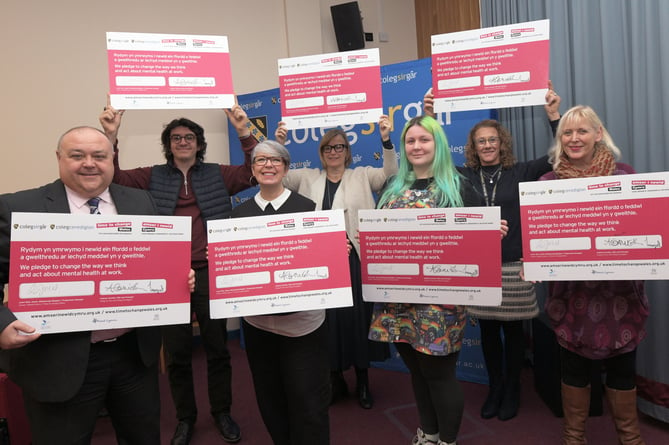Coleg Ceredigion has signed an employer pledge with Time to Change Wales; the first national campaign to end stigma and discrimination faced by people with mental health problems.
By signing the pledge, Coleg Sir Gâr and Coleg Ceredigion, which has campuses in Aberystwyth and Cardigan, is committing to change the way we all think and act about mental health.
Tom Snelgrove, Director of Learner Experience said: ”As we come to the end of what has been our first traditional term since 2019, as a college we are making a firm commitment to support all of our communities mental health and wellbeing, by signing the pledge to become a ‘Time to Change’ college. We have understood the pandemic has brought so many different challenges to all of our staff and learners.
“The Equality, Diversity and Inclusion committee have developed a whole host of activities for the launch day plus a continued support package for both staff and learners which will support this commitment, which will be launched by us committing to be a Time to Change College. The Time to Change Wales pledge is demonstrating our public declaration that as an organisation we will step up and tackle mental health stigma and discrimination and we are committed to taking actions to support our wider community.”
Lowri Wyn Jones, Programme Manager for Time to Change Wales said: “We are delighted that Coleg Sir Gâr and Coleg Ceredigion have made a pledge to take positive steps to help tackle mental health stigma and discrimination in their organisation. We have worked with them to develop a comprehensive action plan to sit at the heart of their pledge so that practical action is taken to tackle stigma at every level of the organisation.
“Mental health problems are the leading cause of sickness absence in the workplace, with 1 in 6 workers experiencing symptoms of depression, stress or anxiety. The cost of mental health problems in Wales is estimated at £7.2 billion a year in loss of output, healthcare bills and social benefits; which is why there is both a strong moral and business case to step up and create more mentally healthy workplaces.”




